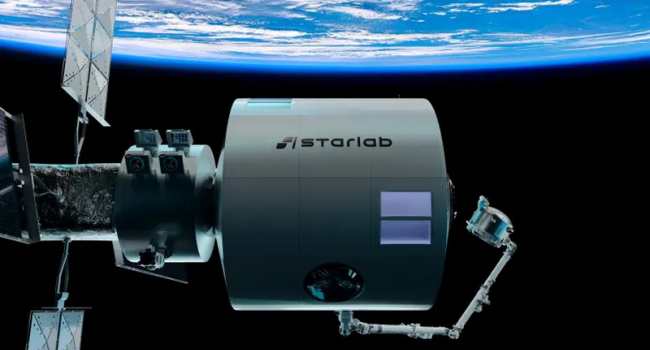
The ISS will be replaced by new Starlab station, which will carried by SpaceX's Starship rocket into space
The private space station Starlab, set to replace the International Space Station (ISS), will be launched into orbit aboard the Starship rocket by the end of this decade. The corresponding agreement was signed between SpaceX, responsible for the rocket, and the joint venture Starlab Space, comprising Voyager Space and Airbus, which is developing the station.
Starlab Space became one of the first commercial clients, ordering the launch of Starship from SpaceX. The cost of the launch contract was not disclosed. The private space station is planned to be launched in a single mission using SpaceX's gigantic rocket.
Starlab is one of several orbital stations currently being developed by private American companies. After the completion of the ISS project in 2030, NASA decided not to independently construct a new orbital station but to entrust this task to private companies and utilize their stations on a commercial basis.
Voyager and Airbus aim to launch Starlab in 2028. The four-year development and construction period also gives SpaceX time to transition from Starship's demonstration flights to launching spacecraft on customer orders. Despite the explosions in the first two Starship launches, the second launch was more successful, raising hopes for an even more successful third launch, for which the company is actively preparing.
Starlab's modules will have a diameter of approximately 8 meters, roughly twice the diameter of the ISS modules. This limits the choice of rockets that can launch the station in a single mission. Dylan Taylor, Chairman of the Board and CEO of Voyager, believes that launching the entire Starlab station on the Starship in a single mission is the "right way to reduce the risk of our program." "Then we won't have to deal with the risky assembly in orbit with multiple launches," Taylor added in an interview with CNBC.
Voyager and Airbus are collaborating on the project with NASA, as Starlab previously received funding under NASA's "Commercial Destinations to Low Earth Orbit" program. The developers are creating the station with a focus on the microgravity research market in space. Starlab is designed for a permanent crew of four people and promises to operate in orbit for up to 30 years.
- Related News
- What will happen to the Earth if the Moon disappears?
- Key to conquering the Red Planet: Why is NASA studying solar storms on Mars?
- James Webb captures never-before-seen details of Horsehead Nebula (photos)
- Is there a ninth planet in the solar system? Scientists find new evidence
- The end of the Universe: 3 plausible theories of a global apocalypse
- Mutated bacteria resistant to drugs found on the ISS: What does this mean and why is it a problem?
- Most read
month
week
day
- 10 most interesting architectural works of Zaha Hadid 854
- Alphabet will pay dividends for the first time in its history 838
- Google is developing a budget smartwatch 805
- Large taxpayers of Armenia’s IT sector: What changes have taken place in 2024 Q1? 743
- iPhone users can now login into WhatsApp without password 718
- Insider shows mockups of all 4 iPhone 16 models 700
- Digital Julfa Network is launching a pan-Armenian centre in the metaverse, on the Fastexverse virtual platform 646
- WhatsApp adds new useful feature 645
- 8800 mAh battery, 2.4K IPS screen, thermal imager: Blackview has introduced a new ultra-durable smartphone 637
- iPhone sales in China drop by about 20%: What is the reason? 611
- Archive
